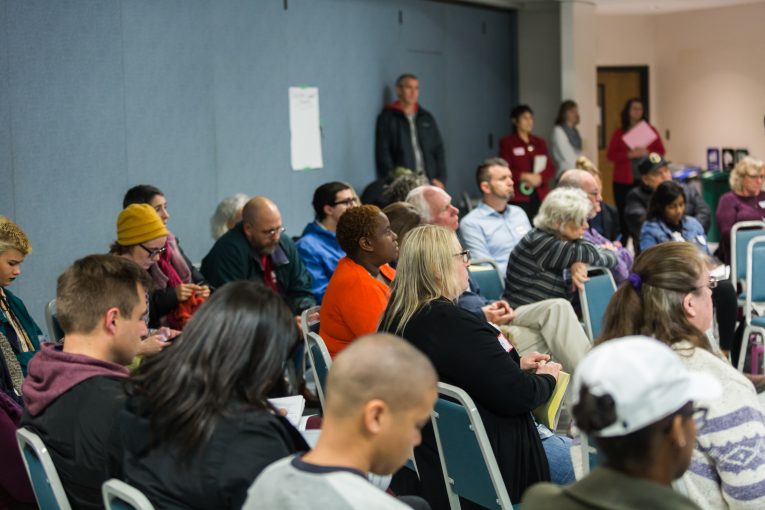
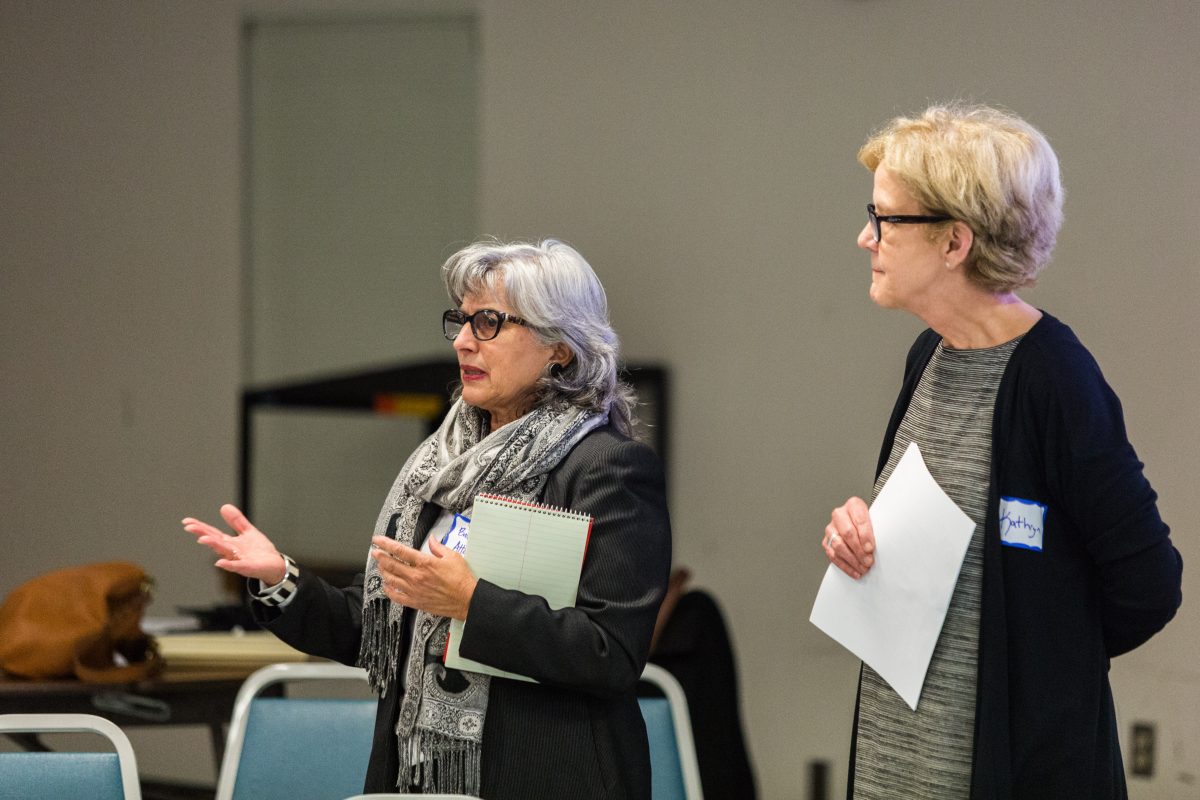
The city of Davis has hired two consultants to help lead it through the police oversight update process – Barbara Attard and Kathryn Olson. On Thursday, over 100 people gathered at the Davis Senior Center to listen to the first step, and then participated in a nearly hour-long discussion facilitated by Elvia Garcia of the Yolo Conflict Resolution Center.
The participants were asked two key questions under the heading of “what are important elements of oversight for Davis?”
First, what are the police issues in Davis that oversight should address?
Second, what factors are important to a successful oversight program in Davis?
What transpired over about 45 minutes of discussion was an eye-opening experience of the last 10 to 20 years of concerns in Davis.
A retired professor told the group that over the years he heard countless stories of racial profiling from most of his students of color.
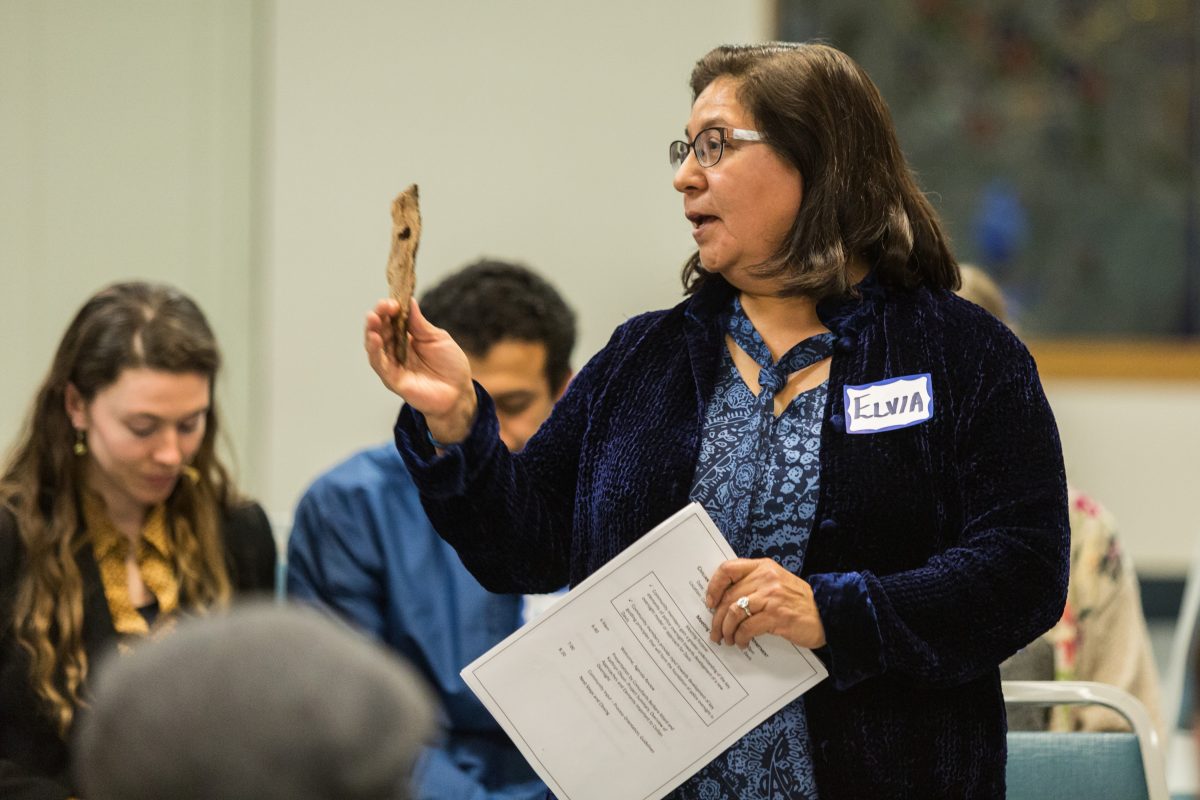
Hazel does a lot of volunteering for agencies that work with the homeless in Davis. She said, “The folks that are homeless feel like they are treated very unfairly by the police, that they’re 
targeted and singled out.” She said, “Any kind of oversight should address the fact that folks who are homeless haven’t in the past felt like they could complain, because if they complain about something that happens, they feel like they’d be targeted that night and rousted at night. They don’t have to a place to go.”
Stephanie Pereira noted that several police have beaten people up on video, they’ve lied about it in court, and no complaints were formally filed. “Nothing happens and they don’t get fired,” she said. “I don’t think that people should have to complain about things formally and take themselves over to the police department in order to be investigated.”
She expressed a sentiment that a lot of the audience did when she said, “I don’t think this oversight board should be appointed by anyone. I think it should be an elected body. Two people at least should be affected by police brutality or have been affected by police brutality in Davis. We need that representation there.”
She added, “They should have the power to really investigate things and release the findings to the public. Because we are kept in the dark.”
Luanna Villanueva said, “I don’t think the commission should have people on it that are appointed by the mayor, the city, or the police chief. I think it needs to be from the citizens in general in Davis.”
Connor Gorman brought up the issue of power. “I don’t think the police and the larger community will ever have the same level of power but I think a civilian oversight board that does have the power to investigate and subpoena and discipline officers would move in the direction (to equalize) the power between the community and the police a bit more.”
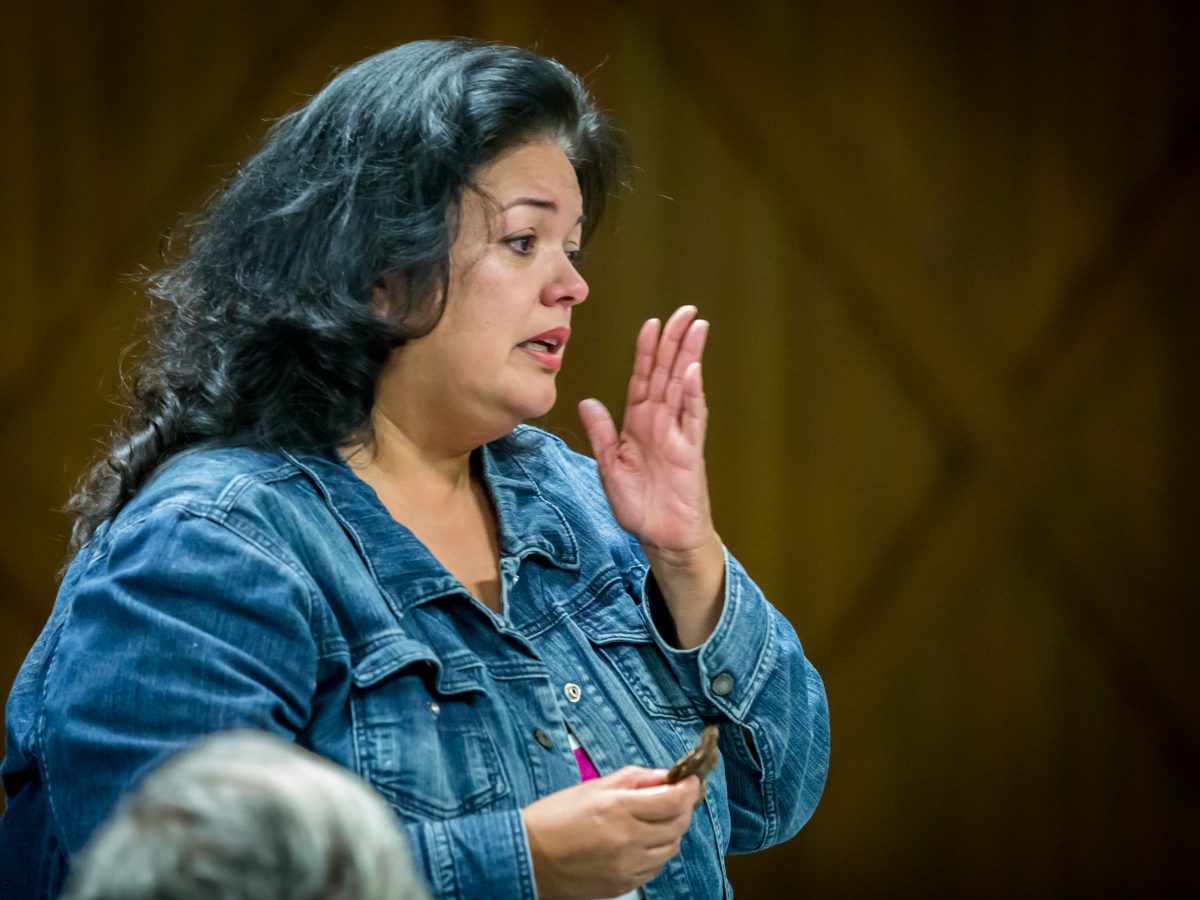
Cecilia Escamilla Greenwald said it really moved her to see everyone there. “I want it to be safe for people to speak up, to not be ostracized, to be criticized for speaking out. That happened ten years ago,” she said.
She expressed concern with the people who were not there because they are afraid to speak out. “I want to include those people from the various community (members) who are not here today,” she said. She asked that the city reach out to those people who might be fearful to come forward and speak out.
Another young lady spoke out, concerned that people of color be included in this body. She said, “We want to make sure that this police oversight body is not just something that the city uses as a way to silence critics, but is a legitimate way to oversee the police.”
Lisa said that knowing we don’t have a perfect tool to do (this), “I hope that we can aim to use the practices that we know of to be able to assess whether we’re doing a good job of addressing things like hate crimes and hate incidents that I’ve heard from more than one source are increasing dramatically in Davis and this country.”
Jann Murray-Garcia noted that she and Cecilia in the mid-2000s decade were struggling with this issue. She suggested that the use of lawsuits proved effective and in 2005-06, there were seven of them. But it was a tough struggle – the Human Relations Commission, she said, “was actually disbanded and they are not allowed to receive complaints.”
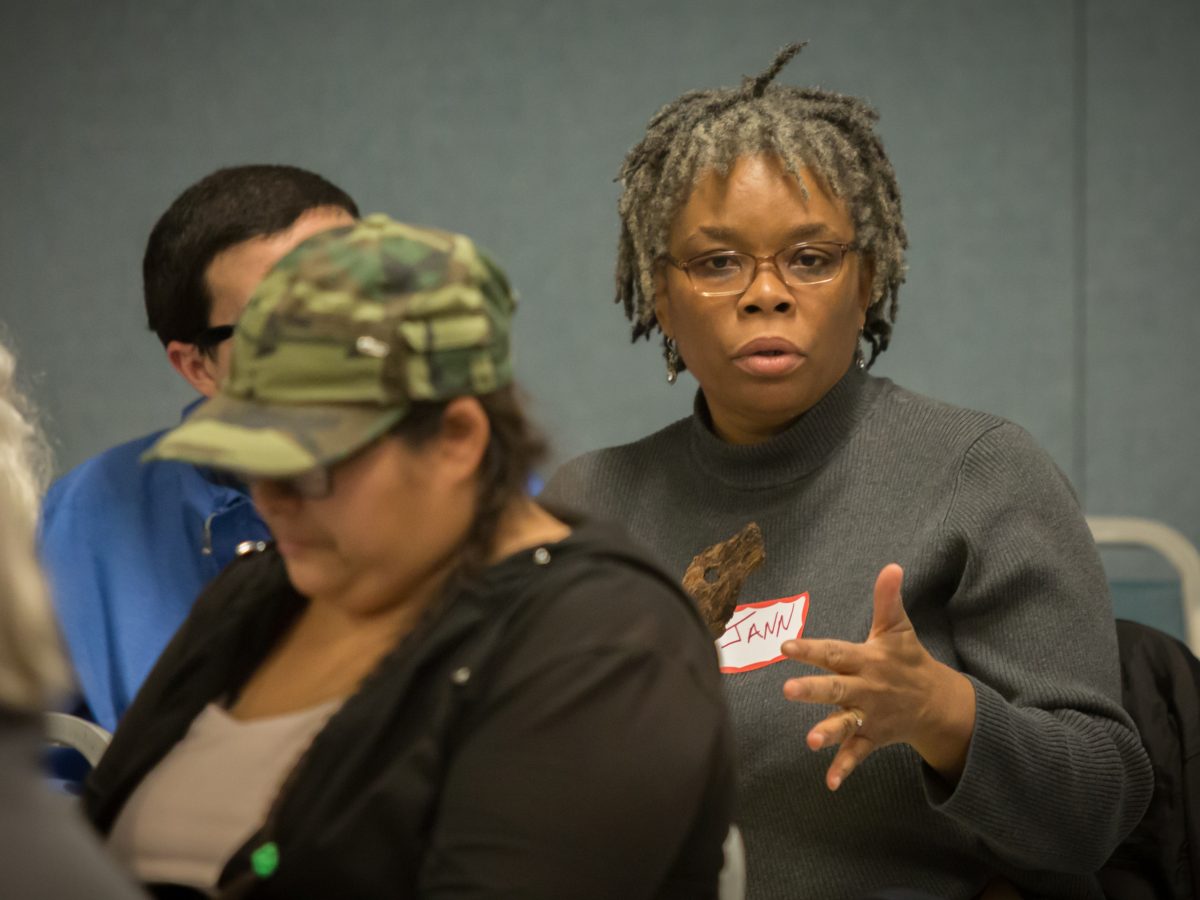
She said, “I don’t want to be afraid for my children to go out. Sometimes I look at my son and he’s so beautiful and he’s 5-8 and I don’t want to be afraid for him. I don’t want people to send their children to this world class university and report that they hate it.”
She was also concerned about the complaint process, noting that sometimes they take months to process. She also said, “I don’t want the complaints to go to the police station.”
Robert Canning talked about the importance of recruiting, noting that “having a police force that is responsive to the community and police having respect for both the citizens and oversight, comes from having people on your police force who are well-trained, have integrity, and are the right people to do policing.”
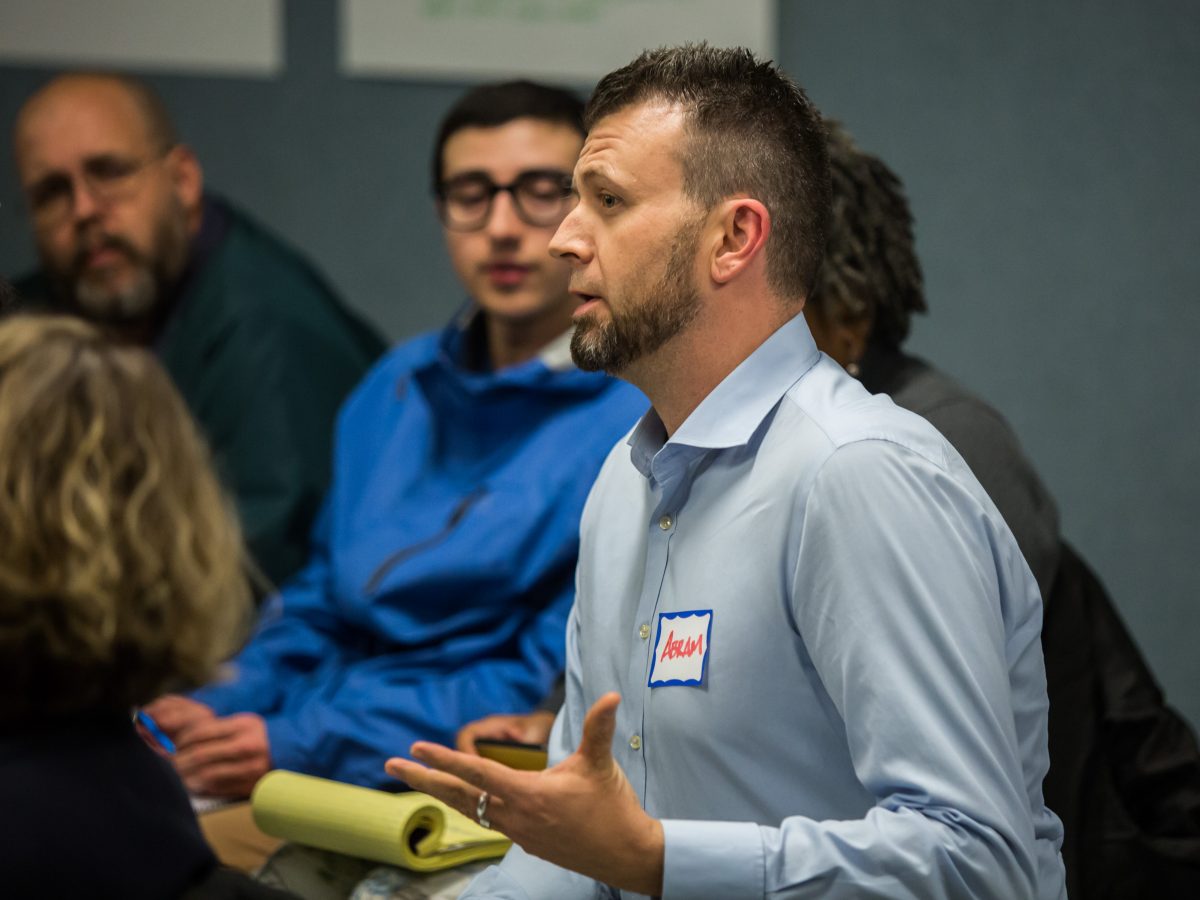
Abram Jones talked about his experience on the UC Davis police accountability board, which Barbara Attard advised when it was being set up. The board came as a result of the 2011 Pepper Spray incident.
He said one thing he learned, serving on it as a graduate student, “was that for the community and the police to take the board seriously, in the community’s eyes, the board must be composed of a very good, thorough cross-section of all demographics, ethnicities, etc.” He said, on the other hand, for the police to take it seriously, “it does need to have some teeth.”
He noted that, with regard to transparency, the board on a quarterly basis releases all of the information that it collects.
Dillan Horton, a UC Davis student, spoke out saying “a good chunk of the people who feel like they’re targets sometimes of the police system, are people who come to Davis as students from outside of the city… I think people should be aware that people outside of the community are becoming aware of that.”
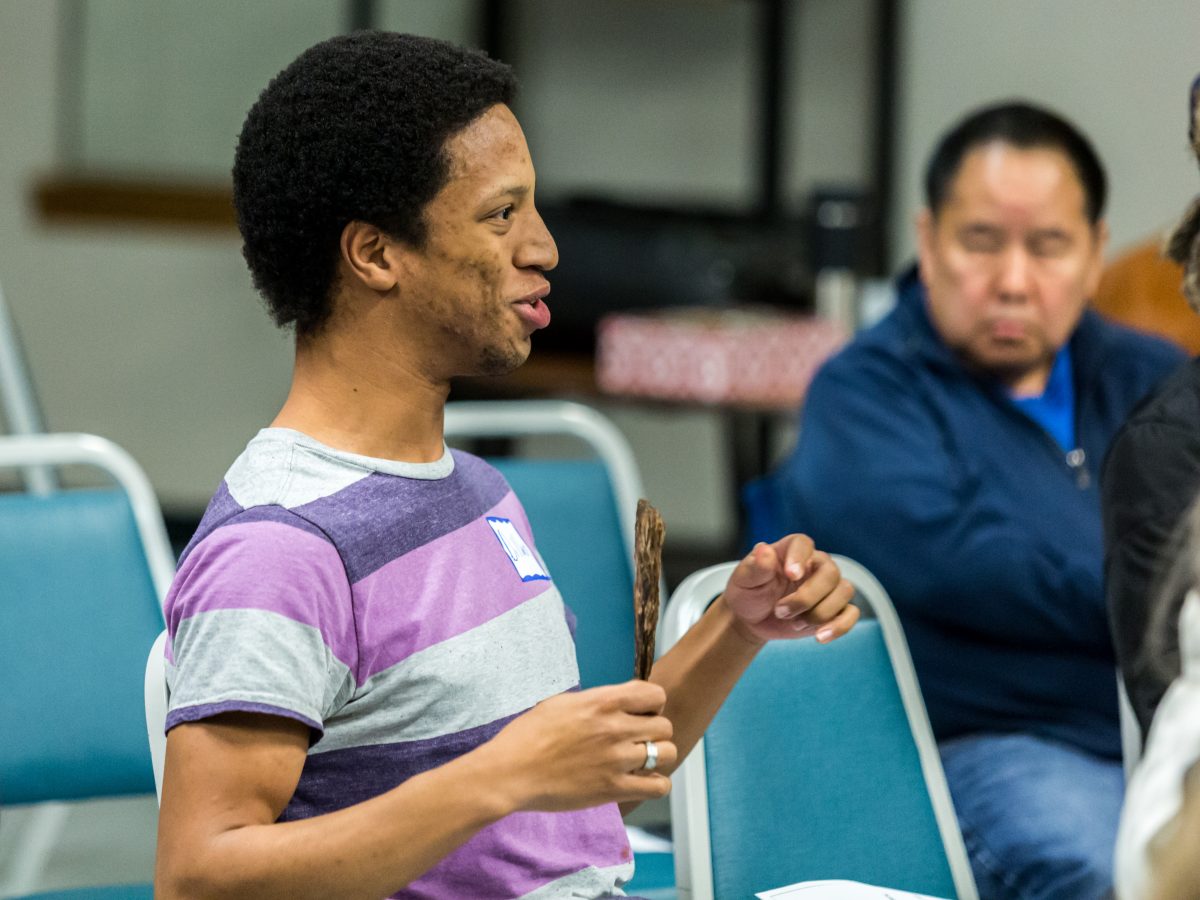
He said some of his African American friends chose to go somewhere else because of what they had heard about African American people’s experience here in Davis.
Ryan Davis said we should be careful of qualifications being required (for commission members), like having a law degree. He quipped, “I have a law degree but I’m also the privileged white guy who stood up because I grew up in Davis. So of course I have a law degree.” He added, “a law degree is totally irrelevant to this.”
He said, “It seems critical that somehow the police themselves buy in and accept this oversight.” He said he could see that in the police station, with the officers grumbling about this and finding ways to undermine the process. So he said, “The people in power at the police department need to find ways to make sure that the culture there is accepting of citizen oversight, believes in it, accepts it.”
Juliette said that, personally, she has had positive interactions with the police, but when she talks to her African American friends, “they have a totally different experience.” On Picnic Day she spoke with an African American man who was considering coming to UC Davis or Sacramento and “that incident made me realize just how unwelcoming our community must be to people of different colors and ethnicities and races.
“I think there needs to be an understanding and awareness of what our dominant white culture is,” she said.
Later she talked about the fact that Davis is a city that promotes bicycling, “and yet our police force is constantly trying to get the latest equipment, the latest expensive police cars and even armored vehicles. To be consistent with our values in this community – police should be on bikes.”

She added, “I want this Davis community, I want my children to grow up in a truly multicultural justice-oriented community with more equality and I do not want to see African Americans and Africans leaving this community after they come here because of the experience they have with the police.”
She said a friend she played soccer with left because “he was so harassed by the police in Davis. He was injured in police custody – severely injured – he had surgery on his hands and he left to go live in San Francisco because he was not safe here. He did not have a life here that was safe and dignified. I don’t want to hear that ever again, those stories happening in a place like Davis.”
Another woman said, “I had a black son who came up here to UC Davis – every single night that he was out at the library or at a friend’s party off campus or even on-campus, he was taken, put up against the car – the whole routine – every single time. And you know that he was at the university for five years, he lived here for five years, (and) after that, he finally just left the country.
“He now lives in another country, where the problem doesn’t exist and he’s safe and feels great,” she said. “That’s terrible. It means because of my economic situation, when he left – he said goodbye.
“I essentially lost my son,” she said with tears coming to her eyes.
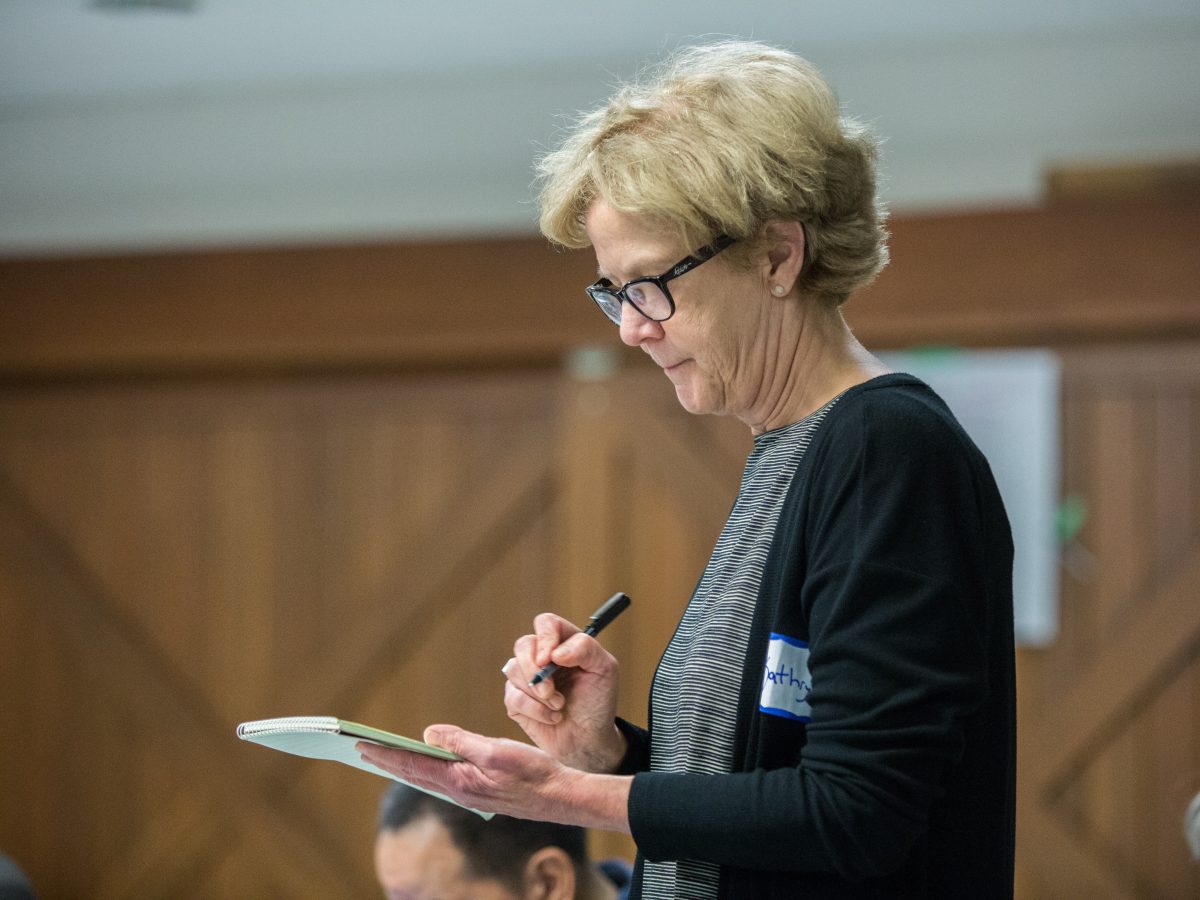
Barbara Attard and Kathryn Olson explained that this is phase 1, in which they will gather “stakeholder input” in a variety of ways: community meetings, sponsored forums, interviews, written input via a website portal, gathering historical information, ride-alongs and meetings with the Davis PD. This will be completed by February 16.
There will be a report and recommendation by March 31 with a public presentation set for April 30.
—David M. Greenwald reporting
We Have Five Days to Raise $750 – Please Donate to the Vanguard


I read this and it sounds like a whole lot of nothing. David, like you’ve stated before at these types of events, it looks like many of “the usual suspects” showed up to comment. Of the stories presented in this article most are hearsay and not too many first hand. I have a hard time believing “every single night that he was out at the library or at a friends party off campus or even on-campus, he was taken, put up against the car – the whole routine – every single time.” Come on, every single time? We have to remember too that we’re only hearing one version of these stories, the police have their side too.
Yes, that does sound like a bit of hyperbole, but I don’t think that should detract from the overall theme of the comments made at the forum. And, the consultants have been and will continue to talk with the Davis PD. They are trying to get both sides of the story.
It probably feels like every single time after awhile.
When I first started the court watch project, we got an African American young man who played linebacker for the UCD football team. I asked him if the police ever stopped him, he said “all the time” – now I’m sure that wasn’t literal, but he said they stopped going into town on the weekends because they got tired of getting stopped by the cops.
Yep. And, really, how many times does it take for it to be a problem? Once it too many.
Usual suspects? I was surprised by how many people there I had never seen before or had never seen before on this issue.
Why all the hearsay and second hand stories? Where’s the meat?
I can’t turn the meeting into something it wasn’t. I reported what the people said. Just as I reported what the public commenters said on Tuesday.
Just an FYI, there was another “protected” police oversight forum that was held on Wednesday because, frankly, it is hard to tell one’s personal story in a wider public forum where people will accuse you of making up stories or being overly sensitive. People really do fear retaliation and the negative repercussions of “going public.”
Keith, I suggest that you attend the next oversight meeting, if you really do care about firsthand stories; and firsthand stories are also what the two oversight consultants will be collecting. I heard plenty of said first account testimonies at the oversight meeting prior to the one written above, from people who didn’t feel safe to speak up in front of someone who would use the word “suspect” to describe them.
If you’re looking for meat, head to the closest Safeway.
Exactly. The meeting was by no means affirmation that our police dept. has a bad culture and needs oversight.
What the meeting was showed that a significant number of citizens had concerns about the police department. You can discount that or acknowledge it.
What would persuade you that it does?
I don’t think that was supposed to be the purpose. Again the two questions:
First, what are the police issues in Davis that oversight should address?
Second, what factors are important to a successful oversight program in Davis?
Certainly not what came out of that event. Certainly not the same old usual suspects that we’ve come to expect that come out and complain at every event like this.
Don Shor, what would persuade you that it doesn’t?
Keith
“those stories happening in a place like Davis.”
I think that your attitude that people’s heart felt stories based on their own ( not your) experiences is exactly what can foster these stories “happening in a place like Davis”. When we do not admit that the experience of others is different from our own, we allow discriminatory behavior to hide under a cloak of denial.
That’s just my point, all the stories I read were not their own stories but second hand and hearsay.
“The meeting was by no means affirmation that our police dept. has a bad culture and needs oversight.”
You are making the assumption that a police department has to have a “bad culture” to need oversight. I believe that all aspects of our government, including the police should be monitored by oversight. There should be transparency in all governmental functions whether it is how the CC or school board is using tax money, whether it is whether our fire department is deploying resources effectively, whether our public works are fulfilling their duties and, given their power of life and death over us, whether the police department is functioning in the best interests of all our citizens.
I am not sure why you would exempt the police from open, transparent oversight. Can you explain ?
Keith
“Certainly not the same old usual suspects that we’ve come to expect that come out and complain at every event like this.”
Ok, one example. Robert Canning has never before attended a police oversight meeting. He attended and commented and is quoted here in what I think is a reasonable request for any entity let alone the police. That there be a careful selection and training process as well as oversight. Does that seem unreasonable to you ?
The police chief reports to the city manager who works at the pleasure of the city council. Thus the police as a function and service have oversight and the public has plenty of existing influence over that function and service through the existing political process.
Any citizen oversight group would still need to influence this chain of command in order to effect any change in the policy and procedure of the law enforcement service. That being the case, an oversight group is useless except if you value another anti-law enforcement propaganda platform.
Lastly, any citizen oversight group is likely to be staffed with anti-law enforcement activists and their voice, and although sure to be more shrill and loud, will be countered by a large more silent majority bending the ear of the city council to insure stronger law enforcement to counter the increasing property crime and violent crime that is sweeping the nation and impacting Davis.
That’s my concern too. If we end up going down that road we need level headed neutral participants, not activists with an anti-cop agenda.
“The police chief reports to the city manager who works at the pleasure of the city council. Thus the police as a function and service have oversight and the public has plenty of existing influence over that function and service through the existing political process.”
The challenge is that police investigations are quite complex. I happened to speak to the chief earlier this week and he just now has the report from McGregor Scott (five months later). He remarked it was lengthy and thorough. Police complaints are complex and you need structures in place to investigate them. Ultimately the City Manager has to make the personnel call (most of the time).
Sorry I missed the event… could have told a couple of stories about Davis PD, and being a “young white male”…
So when YFCU, South Davis Branch was held up (years ago), and the suspect(s) described as Black, my son and his friend were pulled over and questioned at length… both white (my son almost appearing Nordic), male teenagers…
A year or so later, same son was pulled over, and during the stop, the officer (no longer on the force, but widely known as a jerk) ran the registration tag, and found out that I had put the wrong tag on the wrong vehicle (we had two cars with almost identical renewal dates)… the officer told my son that he was pulled over for improper tag (damn, he must have had great vision), cited my son and impounded the car… and then obliterated the tag, so it was difficult to figure out what was going on… finally figured it out, and the traffic court judge vacated the citation.
But it seems that folk want the proposed oversight group to be elected from non-white, non-straight, non- male, who have had hassles with the PD. Got it. Fine. Whatever it takes to be “transparent” and promote justice for all.
Howard P
When I wasa younger man, I was playing in a rock band and frequently found myself in early 1970s Davis. I don’t recall any issues with Davis PD officers, but Yolo SD was another story. I was stopped once for a mysterious intermittent license plate light on my Challenger, that resulted in all of my music gear being piled on the side of the road after I told the cop he was full of it. I took it to mean that the overweight, undertasked soul in the uniform was lonely and lacked the appropriate social skill to just strike up a conversation. I have never been arrested, but I have been physically abused by cops back in the day. I was inclined to write it off as the price of freedom. I don’t think any oversight agency without firing and charging authority will affect the culture of superiority and hate that is American law enforcement.
Noted…